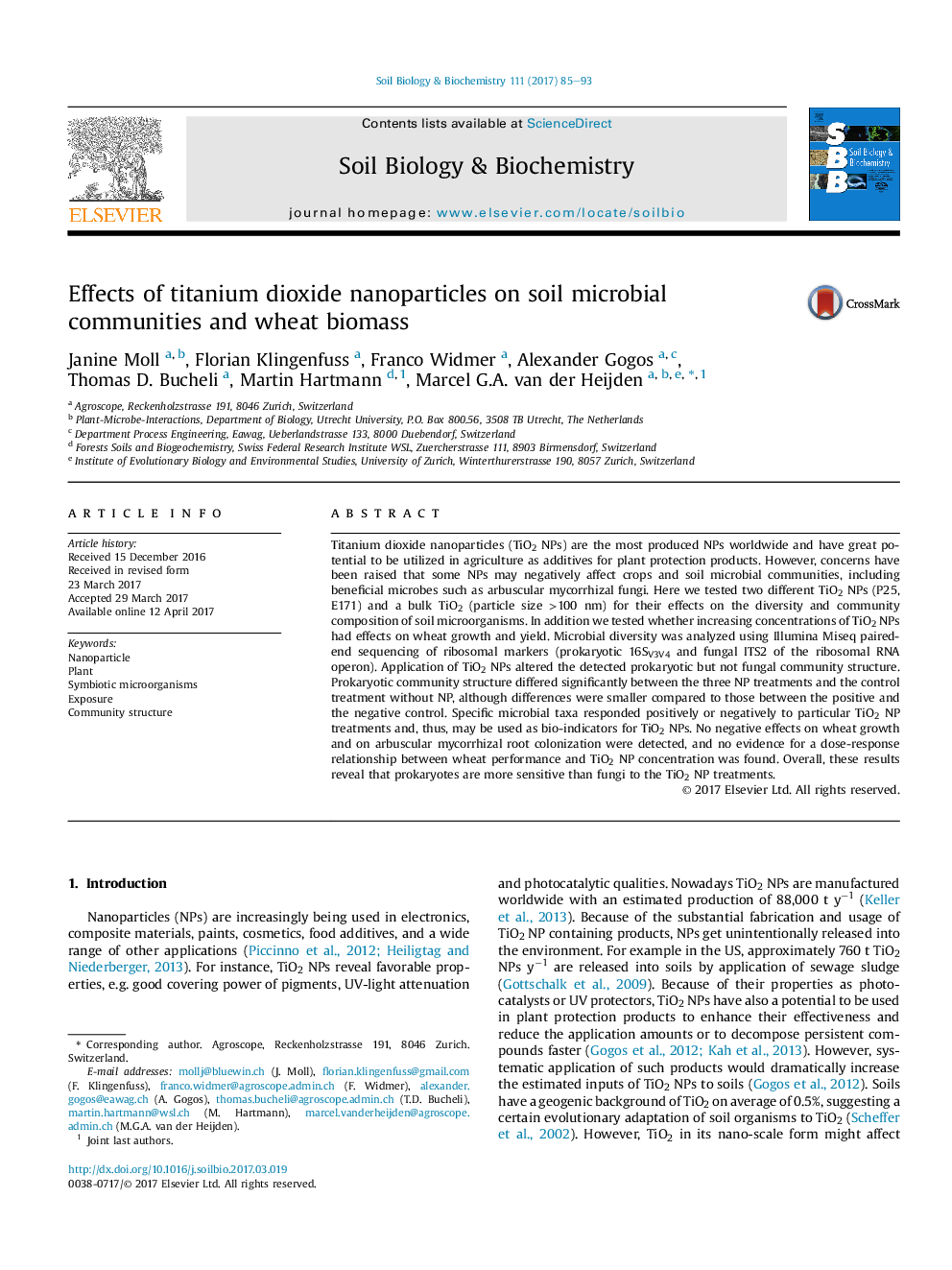| کد مقاله | کد نشریه | سال انتشار | مقاله انگلیسی | نسخه تمام متن |
|---|---|---|---|---|
| 5516288 | 1542573 | 2017 | 9 صفحه PDF | دانلود رایگان |
- Prokaryotic microbes are more sensitive to TiO2 nanoparticles than micro-eukaryotes.
- Wheat and arbuscular mycorrhizal fungi were not affected by TiO2 nanoparticles.
- Specific microbial taxa may act as bio-indicators for TiO2 nanoparticles.
Titanium dioxide nanoparticles (TiO2 NPs) are the most produced NPs worldwide and have great potential to be utilized in agriculture as additives for plant protection products. However, concerns have been raised that some NPs may negatively affect crops and soil microbial communities, including beneficial microbes such as arbuscular mycorrhizal fungi. Here we tested two different TiO2 NPs (P25, E171) and a bulk TiO2 (particle size >100Â nm) for their effects on the diversity and community composition of soil microorganisms. In addition we tested whether increasing concentrations of TiO2 NPs had effects on wheat growth and yield. Microbial diversity was analyzed using Illumina Miseq paired-end sequencing of ribosomal markers (prokaryotic 16SV3V4 and fungal ITS2 of the ribosomal RNA operon). Application of TiO2 NPs altered the detected prokaryotic but not fungal community structure. Prokaryotic community structure differed significantly between the three NP treatments and the control treatment without NP, although differences were smaller compared to those between the positive and the negative control. Specific microbial taxa responded positively or negatively to particular TiO2 NP treatments and, thus, may be used as bio-indicators for TiO2 NPs. No negative effects on wheat growth and on arbuscular mycorrhizal root colonization were detected, and no evidence for a dose-response relationship between wheat performance and TiO2 NP concentration was found. Overall, these results reveal that prokaryotes are more sensitive than fungi to the TiO2 NP treatments.
227
Journal: Soil Biology and Biochemistry - Volume 111, August 2017, Pages 85-93
